Atrial Appendage Occluder Implantation in Atrial Septal Defect (ASD)
Treatment prices are regulated by national law of the corresponding countries, but can also include additional hospital coefficients. In order to receive the individual cost calculation, please send us the request and medical records.
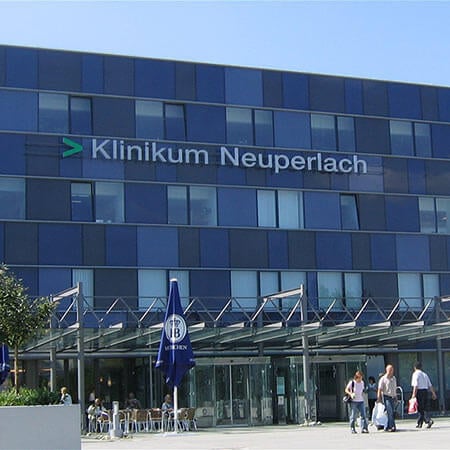
Department of Cardiology and Pulmonology
The Department of Cardiology and Pulmonology provides the full range of diagnostic and therapeutic services for patients with diseases of the cardiovascular system and lungs. In the field of cardiology, key attention is paid to the treatment of valvular heart disease, arrhythmias, heart failure, coronary artery disease, arterial hypertension and aortic diseases. The department's pulmonologists mostly deal with the treatment of pneumonia, bronchial asthma and chronic obstructive pulmonary disease. In addition, the department operates an Intensive Care Unit, within which patients can receive artificial ventilation, renal replacement therapy and procedures for maintenance of blood flow. The department's Chest Pain Unit is certified by the German Cardiac Society and provides medical care to patients with acute coronary syndrome. The department successfully uses in its clinical practice both proven classical treatments and innovative medical achievements, which are available only in leading European hospitals. The department's medical team provides treatment to more than 3,200 patients every year.


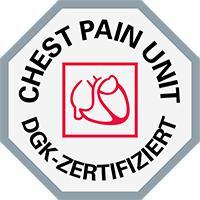
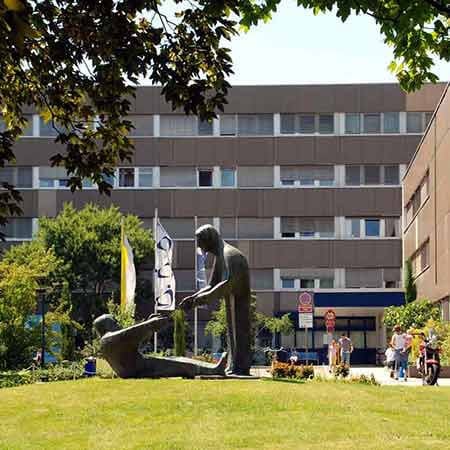
Department of Cardiology and Angiology
The Department of Cardiology and Angiology offers the full range of medical services in the fields of its competence. The department's doctors specialize in the treatment of congenital and acquired heart defects. The key focus is on catheter-based heart interventions, which are characterized by a minimal trauma rate and allow patients to avoid an open operation. For this purpose, the department has three modern Cardiac Catheterization Laboratories. The department also houses an Intensive Care Unit and a Chest Pain Unit for patients with acute coronary syndrome. The medical facility has 82 beds. The department was awarded the prestigious quality certificate from the German Cardiac Society (DGK) for outstanding results in the treatment of mitral valve diseases and acute coronary syndrome. Another important area of work of the department's physicians is comprehensive heart examinations for the prevention of heart disease. For this purpose, specialized Check Up Programs have been developed here, which include an optimal set of diagnostic tests. The medical facility employs a highly professional team of doctors and nursing staff, which makes every effort to provide each patient with effective medical care in a pleasant and comfortable atmosphere.
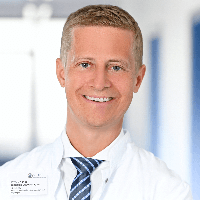

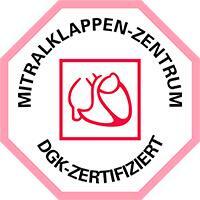
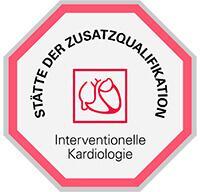


Department of Cardiology and Angiology
The Department of Cardiology and Angiology offers the full range of medical services in the areas of its specialization. The medical facility holds consultations and carries out the diagnostics and treatment of diseases of the heart and blood vessels. The department's team of cardiologists focuses on patients with valvular heart disease, heart rhythm disturbances, coronary artery disease, heart failure, and congenital heart disease. The department has a Chest Pain Unit certified by the German Cardiac Society (DGK) for the treatment of acute coronary syndrome. In the field of angiology, of key interest is the treatment of peripheral arterial occlusive disease, vascular stenosis of various locations, including carotid artery stenosis, and deep vein thrombosis. During the treatment of diseases of the heart and blood vessels, the department’s specialists use various drug therapy regimens and perform image-guided interventional procedures. The medical facility has been recognized with quality certificates for transcatheter aortic valve implantation (TAVI) and treatment of heart failure and mitral valve disease. Patients are treated by highly qualified physicians who strive to restore the patient's health using sparing treatment methods.
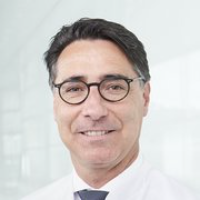





An atrial septal defect is one of the most common heart defects. Previously, the only way to treat it was with open-heart surgery. Today, the main treatment method for a defect is considered to be atrial appendage occluder implantation, which is performed through an incision in the inguinal region from inside the blood vessels. This is a minimally traumatic procedure, after which patients do not require a long recovery. You can undergo your treatment abroad to get rid of an atrial septal defect once and for all with minimal health risks. You are welcome to use the Booking Health website to learn about treatment costs and compare prices of treatment abroad at different hospitals.
Content
- Treatment principles for an atrial septal defect
- Who may be a candidate for interventional atrial septal defect treatment?
- Why to undergo your atrial septal defect treatment abroad?
Treatment principles for an atrial septal defect
In patients with an atrial septal defect, blood is discharged from one atrium to the other, usually from the left to the right, because pressure is higher in the left one. Doctors need to close the hole to solve this problem. To do this, an occluder, a device that looks like a double disc, is delivered through the blood vessels to the heart. It is fixed to the septum of the heart and closes the defect.
The treatment is less traumatic than conventional surgery because it does not require any chest incisions. An incision is made in the groin where the large femoral vessels pass. All manipulations are done from the inside of the blood vessels and the heart under X-ray guidance.
The first endovascular procedure to close an atrial septal defect was performed in 1976 by King and Mills. The first occluder was the Amplatzer septal occluder. Since then, many other devices have appeared, including Gore Cardioform (GSO), flexible Figulla Occlutech, Cardioseal/Starflex, and biodegradable Biostar or Biotrek.
Any occluder consists of two discs and a connecting segment that holds them together. The connection passes through a hole in the interatrial septum. Occluders can be self-centering and non-self-centering. The first type includes devices in which the septum completely fills the defect, thereby improving stability. The discs of non-self-centering occluders should be 2 times the diameter of the defect in order to ensure its complete closure without any displacements.
Who may be a candidate for interventional atrial septal defect treatment?
In 90% of cases, an atrial septal defect can be closed with an occluder. Only 10% of patients need open surgery. In addition, in some cases, doctors are unable to implant the occluder, so they have to switch to open surgery. It is best to seek medical attention at a reliable hospital to reduce the risk of failure.
Below are listed the main restrictions that do not allow or make it difficult to perform an endovascular procedure, increasing the likelihood of failure:
- a defect in the edge of the septum (at least 5 mm is required to securely fix the occluder);
- multiple defects;
- combination with other cardiovascular defects;
- deformation of the interatrial septum.
Why to undergo your atrial septal defect treatment abroad?
If you have an atrial septal defect, you can undergo your treatment abroad. There are a few reasons for you to go abroad. These are the following:
- modern hospitals with state-of-the-art equipment;
- advanced types of occluders;
- high efficiency of endovascular procedures;
- a low risk of technical failure, which is the reason for performing open surgery;
- successful endovascular procedures even in low-birth-weight children;
- successfully completed procedures in complex cases, for example, in deficiency of the aortic margin or in arrhythmias in adult patients;
- a low risk of complications, including heart blocks.
On the Booking Health website, you can find out the price of treatment abroad and choose a medical care program at a favorable cost. Our website offers the best hospitals abroad that admit foreign patients. When you make an appointment at the hospital through Booking Health, the cost of treatment will be lower for you than if you contact the hospital directly. The prices of treatment are reduced due to the absence of additional taxes for foreign patients. The initial price of treatment will not increase because the extra costs not covered by the medical care program will be covered by your insurance.
The medical tourism agency Booking Health will take care of organizing your trip abroad. Our company's specialists will help you select a hospital that specializes in endovascular atrial septal defect treatment and achieves the best results. We will contact the hospital and schedule an appointment for your preferred dates, translate your medical records, and book the nearest hotel to the hospital. We will also meet you at the airport abroad and take you to the healthcare facility by car. After the completion of your treatment, we will provide your transfer to the airport.
Authors:
The article was edited by medical experts, board-certified doctors Dr. Nadezhda Ivanisova and Dr. Vadim Zhiliuk. For the treatment of the conditions referred to in the article, you must consult a doctor; the information in the article is not intended for self-medication!
Sources:
ECR - European Cardiology Review

